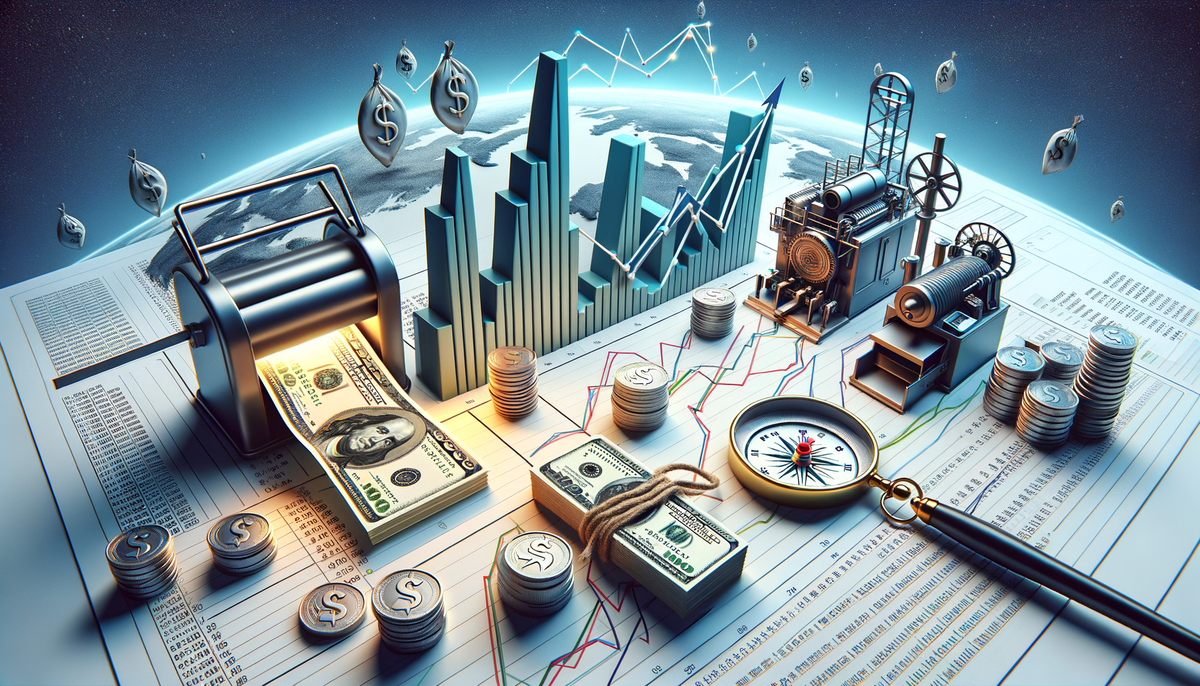Inflation Insights: Navigating the Complex Dynamics of Price Surges
Explore the complex dynamics of inflation and its wide-ranging effects on the economy. Our expert insights help navigate through these economic challenges.

Inflation has been a buzzing topic in the economic sphere, with its impacts reverberating through various sectors globally. As inflation rises, understanding its nuances becomes crucial not only for policymakers but also for business leaders and economic professionals. This post delves into the trending topic of inflation, examining its causes, effects, and implications.
What Is Inflation?
Inflation is essentially the rate at which the general level of prices for goods and services increases in an economy over a certain period. It's most commonly measured annually. As prices increase, the purchasing power of money declines, meaning fewer goods and services can be purchased with the same amount of currency. This phenomenon is well-documented across various resources, highlighting its critical impact on economic stability and livelihood (Source, Source, Source).
How Is Inflation Measured?
The measurement of inflation is primarily done through indices that track changes in prices over time. Some notable indices include:
- Consumer Price Index (CPI): This index measures the average change over time in the prices paid by urban consumers for a market basket of consumer goods and services.
- Wholesale Price Index (WPI): It measures the changes in the price of goods at a wholesale level.
- Retail Prices Index (RPI): Commonly used in the UK, this index covers a broader basket of goods and reflects price changes affecting low-income households more acutely.
The inflation rate is then calculated by assessing the percentage change between index values over time. For instance, a rise in CPI from 202.416 to 211.080 over a year reflects a 4.28% inflation rate.
Types and Causes of Inflation
Inflation can manifest in various forms based on its underlying causes:
- Demand-pull inflation: Occurs when consumer demand outstrips supply, driving prices higher.
- Cost-push inflation: Arises when the costs of production increase, prompting businesses to pass on these costs to consumers.
- Built-in inflation: This involves a feedback loop where workers demand higher wages to keep up with rising costs, prompting businesses to charge more for goods and services to cover those wage increases.
Key causes contributing to inflation include:
- Expansion of the money supply: Central banks may inflate money supply to boost economic growth, which can lead to inflation if it surpasses the growth rate.
- Supply chain bottlenecks or shortages: Disruptions or shortages in the supply chain can elevate prices sharply.
- Expectations of inflation: Anticipated inflation can lead to proactive price raising by businesses, fueling further inflation cycles.
Effects of Inflation
Inflation has wide-ranging effects on the economy:
- Erodes purchasing power: As inflation rises, the same amount of money buys fewer goods and services, potentially lowering living standards.
- Can benefit borrowers: As wages rise alongside inflation, borrowers find it relatively easier to repay fixed-rate loans.
- Can hurt savers: Savings lose real value if inflation outpaces interest rates on savings accounts.
- Assets may appreciate: Real assets like property may gain in value, offering a hedge against inflation.
Controlling Inflation
Governments and central banks employ several tools to manage inflation:
- Adjusting interest rates: Higher rates can dampen spending and borrowing, reducing pressure on prices.
- Monetary policy tightening: This includes selling government bonds or increasing bank reserve requirements to reduce the money supply.
The political and historical significance of inflation cannot be understated. High inflation has played pivotal roles in shaping policy and political dynamics across nations. For instance, in the 1970s, inflationary pressures led President Gerald Ford to label it as "Public Enemy No. 1", marking a period of substantial economic and policy shifts in the United States.
Conclusion
Inflation remains a critical economic challenge that reflects the intricate balance between growth, policy, and market dynamics. As businesses and policymakers strive to address these challenges, understanding the factors influencing inflation becomes essential for strategic decision-making. At Newsomix, we aim to keep our readers informed and prepared to navigate these complex dynamics.
For professionals dealing with inflation, our consulting services offer tailored insights and strategies to help manage risks and capitalize on market opportunities. Explore our services to see how we can assist in navigating these economic challenges.




